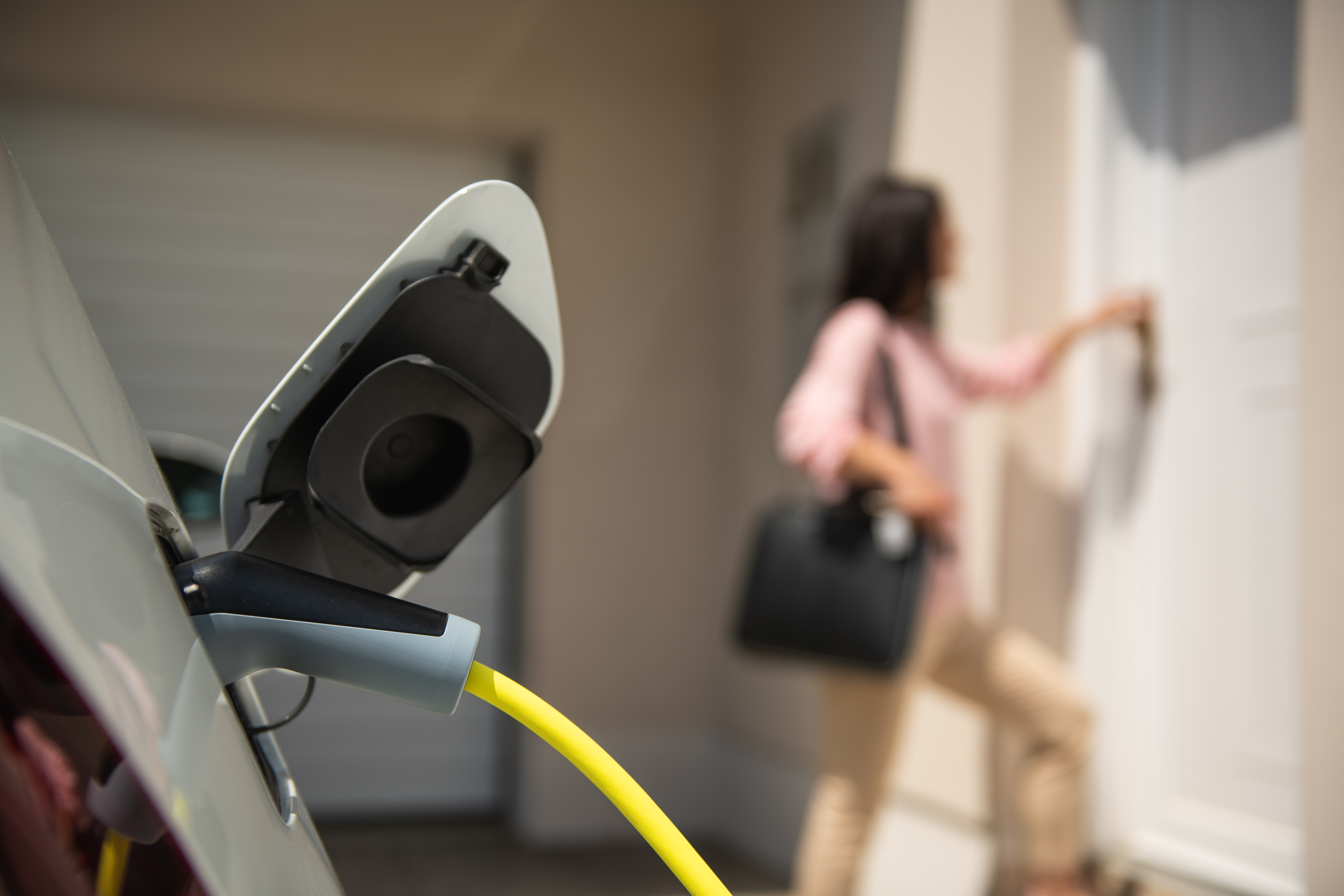Charging an electric vehicle (EV) with free, clean energy generated from solar panels on your property is a win-win. Your solar panels offset some of the increased electric load of charging an EV, and you have the satisfaction of knowing that your vehicle is charging with renewable energy.
Whether you have solar panels already or you’re planning to install them, there are several factors to consider if you want to charge an EV from your system.
Can an electric car be charged with solar panels?
Yes. The electricity produced by home solar panels can be used for any electricity needs in your home, from appliances to electronic devices to EV batteries. Generating your own clean electricity from solar not only lowers your energy bills and shields you from utility price hikes, but it can also drastically reduce the cost of running your EV.
How does solar EV charging work?
Typically, solar panels are installed on the roof and connect to your home electricity supply through an inverter, which is usually mounted in a garage, basement, or utility room. But they can also be connected directly to an EV charger. These charges are usually close to where you park your car, such as in a garage, carport, or driveway.
Many electric vehicle chargers can be integrated with solar panels. The main consideration is the size of your solar energy system: Is it large enough to provide electricity to your home as well as an EV? If you already have solar panels, you may need to add a few extra to meet the increased demand from the EV. If you're planning to install solar, let your installer know if you have or plan to buy an EV.
How many solar panels do you need to charge an EV?
The number of solar panels you need depends on several factors, including where you live, how much energy your household uses, what direction your roof faces, and the type of solar panel you install. In general, however, it takes between seven and nine solar panels to charge an electric vehicle. It’s important to tell your solar installer if you plan to buy an electric car — even if it's not right away — so that they can correctly size your solar system and choose an inverter that can handle the potential increase in power output in the future.
Can you add more panels to an existing solar system to charge an EV?
Yes, provided you have enough space. It's a good idea to use the same panels you already have so that the power outputs and specifications match as closely as possible. It's also worth asking an installer to check whether any components, racking, or wiring needs upgrades, especially if you’ve had your existing solar panels for a while.
Will charging an EV with solar save money?
Yes, because electricity generated by your solar panels is free! You have to pay to charge your EV at a public charging station or from electricity supplied by your utility at home. The rates you pay depend on the charging station or your utility rate, which you can find on your bill in cents per kilowatt-hour (kWh).
How long does it take to charge an EV with solar?
An average electric car takes about eight hours to charge fully. Several factors influence charging time, including the size of the car's battery and its maximum charging rate, which is the rate at which the battery takes in electricity. There are also different types of chargers available, ranging from Level 1 chargers (the slowest) to Level 3 chargers (the fastest).
How do you charge an EV when your solar panels aren't producing power?
The time of day and weather conditions will affect how much electricity your solar panels produce. On cloudy days or overnight, for example, your panels will produce much less electricity. You may need to supplement your solar power with electricity from the grid.
You could also install a battery system to store the clean, free solar power that your panels generate. That way you can draw power from the battery when your solar panels aren’t producing electricity — say, if you want to charge your EV overnight. Battery storage allows you to maximize the benefits of your solar panels.
Charging an electric car with solar panels makes so much sense. Whether you plan to install panels for the first time or expand an existing solar energy system, working with the right installer will ensure your solar system is correctly sized to charge your EV.
Panasonic’s network of vetted installers has the knowledge, tools, and experience to help you plan the best solar system for your home and electric car charging needs. Talk with an authorized Panasonic installer and get all your questions answered.





